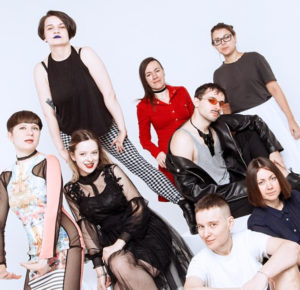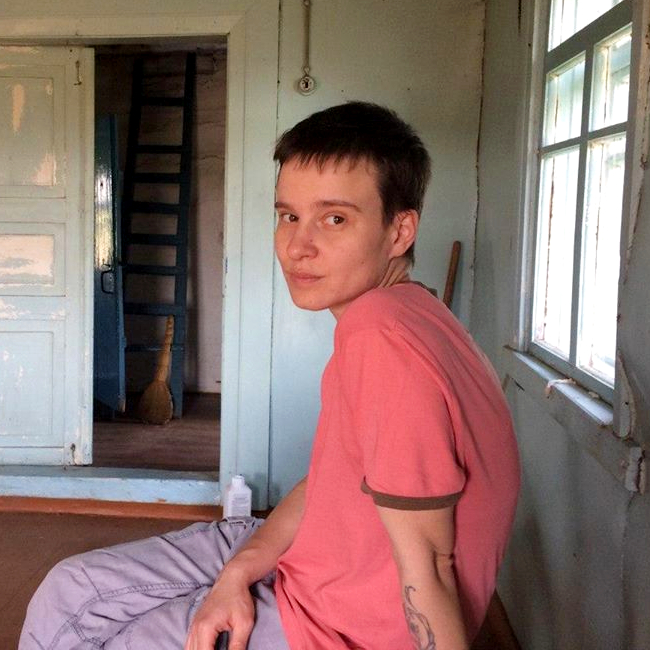What was it like to grow up as a queer person in Belarus?
My story was, to a large extent, about invisibility. When I was growing up, I did not see similar stories or people in the media, in books, or on TV. In official media there is no LGBTQ coverage at all. I felt this invisibility for a long time. In recent years, I began to raise more attention towards LGBTQ issues and homophobia. It’s difficult to see the violence and experience homophobic rhetorics, and that to be the only confirmation that you at least exist.
What kinds of homophobic rhetoric is present in Belarus, exactly?
Two years ago, a homophobic minister in the Ministry of Internal Affairs made official statements on his website claiming that LGBTQ people and their rights are fake. For a long time, LGBTQ Belaruisans have felt this kind of violence and homophobia. We do not feel that the government or police will protect us because we see homophobic things like this on official ministry websites.
Additionally, the political situation in Russia influences Belarus. Their state homophobia and anti-LGBTQ laws influence us because we are neighboring countries. Though we don’t have these discriminatory laws about a “propaganda of homosexuality,” a lot of people in Belarus think that we have them, too. When we held our events, police could come and say that we were making propoganda of homsexuality. We said “Sorry, but we don’t have such a law. Do you know which country you live in?”
 Can you tell me more about how you became involved in LGBTI activism?
Can you tell me more about how you became involved in LGBTI activism?
I’ve been involved in LGBTQ activism in Belarus since 2014. As a queer person in Belarus, I experienced a lack of opportunity to speak for myself, and noticed a lack of voices of queer people in activism. My friends and I wanted to create a platform where we could speak for ourselves and tell our own stories. It began with an online web magazine and from then more people joined. Our website is called “Makeout.” We have some articles in English, though it’s mostly in Belarusian and Russian. We have different offline events for people in the LGBTQ community. Recently we began to have events for broader audiences, especially professionals who could learn to provide services for LGBTQ people properly.
How are the current protests relevant to the LGBTI community?
After election day, people went to protest. People just could not live with this political situation so we started protesting. People are striking, especially factory workers. Around 7,000 people were arrested and beaten. Several thousands of people went to hospitals because they were beaten and injured, and many were tortured in the prisons. Six people were killed.
As for LGBT people during the protests, we’re on the streets protesting and involved in different volunteering movements, such as helping people who’ve come from prison or helping doctors who cure injured people. LGBT people knew about this kind of violence from previous experiences with the state government, its ministers, and the police. It’s difficult to see that the scale of the violence now has become so visible to the public and clear that our reality has become the reality for everyone.
However, LGBT people are being disproportionately impacted. We see the problem of systemic homophobia during the arrests. For example, people who have non-normative clothes, earrings, or colored hair would experience harder violence from police because of this homophobic profiling.
How can people outside of Belarus be supportive of what’s happening right now?
It is a big support when you pay attention to Belarus and when you write in your media or blogs. You can just tell your friends about what is happening in Belarus. If people feel that they can go to embassies of Belarus in their countries, it is also very important. Financial support is very important as well. There are two big spheres of support: donations for people who suffered from oppression, who have been detained or injured, and who are still in prisons. The second sphere that’s helpful is donations for the workers who are on strikes now.

